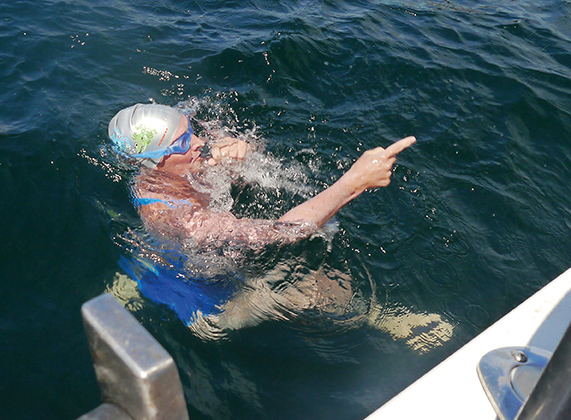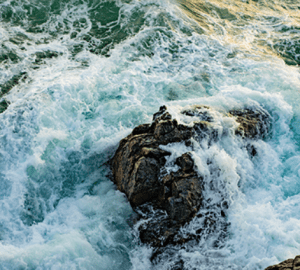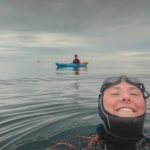Beth French: Redefining parameters
Beth French is no stranger to overcoming incredible challenges. In 1993, ME left her wheelchair bound, but after after almost a decade of illness she made an extraordinary recovery from the debilitating syndrome.
Her swimming CV already includes the English Channel, the Molokai Channel (a British female first) and the 26-mile Scilly Island Channel from Cornwall to St Mary’s – a world first. But completing the Oceans Seven in one year is a mammoth challenge: Beth will have to swim seven of the toughest channel crossings in the world with minimal time for recovery.
We spoke to Beth to find out more about this extraordinary undertaking and the power of the mind in open water.
What inspired you to undertake this challenge?
I concocted the mad notion that I could swim all Oceans Seven channels in a year when I was about 5 miles from completing my solo crossing of the Molokai channel.
There had been a twinge in my left elbow, but suddenly I found I couldn’t move it at all. And then my left shoulder froze. I could no longer get it out of the water to swim front crawl, nor could I put any resistance through it via breaststroke. So I one-arm doggy paddled the last seven miles, which with the Pacific swells, took me a further 12 hours.
I’m not ashamed of holding the longest crossing of the Molokai channel – I swam for 24hrs 10mins. It was then that I realised just how much I love channel swimming. Having recovered from ME, which is relentless, I know I have different parameters for coping.
How did you overcome ME?
There’s no one simple road to recovery. You have to learn your personal triggers. I know that if I lived in a different way then I would relapse.
In what order will you complete the swims?
I’m starting with the North Channel. It’ll be the coldest and I don’t want to have to attempt that without a full tank of gas. Then the Catalina Channel, the Molokai Channel, the Cook Straits, the Straits of Gibraltar, the Tsugaru Channel and to finish, the English Channel in time for my fortieth birthday.
What does your training schedule look like?
I train a lot less than people expect due to my ex-ME health and hyper mobility.
I can’t train every day like some competitive pool swimmers. I sporadically torture myself with random sets of an hour and a half legs only, or towing my son in a dinghy in the sea.
Being a single mum also helps with the mental training and dealing with sleep deprivation – they are not new experiences!
In this kind of event one channel becomes training for the next, so it’s a perpetual taper once you are in it.
How have the challenges you faced changed the way you view and interact with the world?
ME has shaped my life ever since I was 10. I’ve experienced life more fully (both good and bad) than most people get the chance to, or would like to. That changes you.
I am grateful for every day that I wake up able to walk. It’s not something I take for granted.
I can’t be complacent with my life – I’d get ill. But I also can’t help exploring what is possible for me now. It’s left me hopelessly fascinated by human endeavour and our potential capabilities.
How important is meditation in your recovery and swimming?
Having taught meditation for the last 14 years, it never ceases to amaze me how little we are actually in communication with our own bodies. Mental training, learning to prioritise and be aware of our own experiences, allows you to choose your reactions.
Fatigue on a long swim or cold water become sensations that you can calmly deal with, allowing your body to cope much better physiologically. By not emotionally reacting, your body is less constricted, your mind is clearer and you can make better judgment calls.

How can swimmers use meditation?
Whether you are looking for a PB, cold water acclimatisation, stamina or stroke improvement, building up your ability to retain focus is paramount.
Mindfulness works by not letting experience run away with your mind, but acknowledging it without judgement. It’s about staying relaxed, being mindful of your arms as they tick over and tracking different aspects of your stroke and making adjustments as you go. Counting lengths on long sets, focusing on the outbreath on sprint sets – all these things are perfect to hang your mind on.
Any marathon swimmer will tell you that the mind plays a vital role in success over distance; and having a healthy relationship with it takes practice, as with any other aspect of the sport.
Follow Beth’s journey at bethfrench.co.uk
A version of this interview originally featured on the blog A Lotus Rises, part of a community of women who inspire and are inspired by a love of open water, founded by Alice Gartland.







